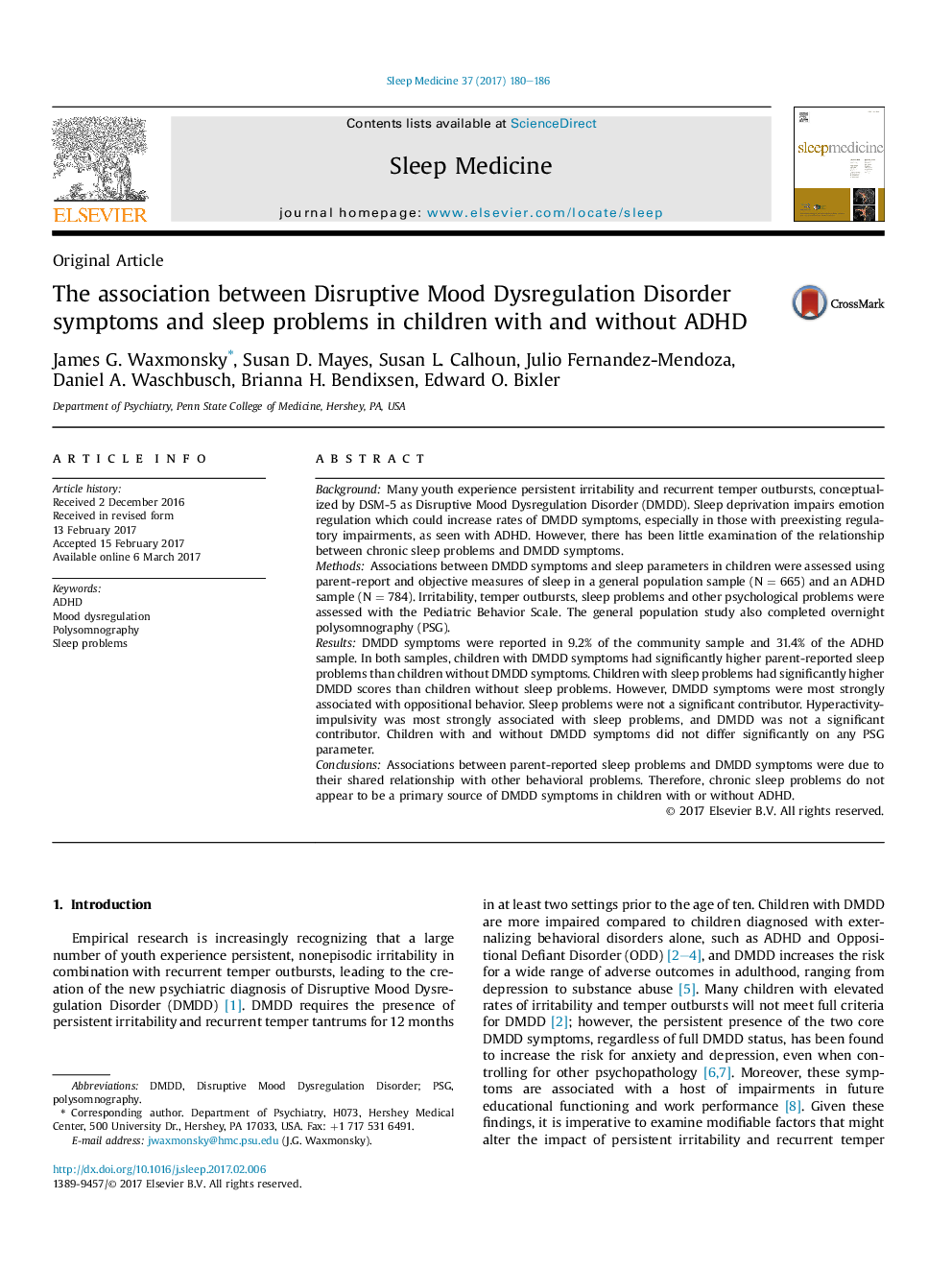| کد مقاله | کد نشریه | سال انتشار | مقاله انگلیسی | نسخه تمام متن |
|---|---|---|---|---|
| 5643877 | 1586472 | 2017 | 7 صفحه PDF | دانلود رایگان |

- Sleep problems (SP) impair emotion regulation, which can lead to symptoms of Disruptive Mood Dysregulation Disorder (DMDD).
- Children with DMDD symptoms have elevated rates of parent-reported SP.
- Associations between SP and DMDD symptoms were largely explained by presence of other behavioral problems.
- Children with and without elevated DMDD symptoms did not significantly differ on polysomnography parameters.
- Chronic sleep problems are unlikely to be the primary cause of DMDD symptoms in children.
BackgroundMany youth experience persistent irritability and recurrent temper outbursts, conceptualized by DSM-5 as Disruptive Mood Dysregulation Disorder (DMDD). Sleep deprivation impairs emotion regulation which could increase rates of DMDD symptoms, especially in those with preexisting regulatory impairments, as seen with ADHD. However, there has been little examination of the relationship between chronic sleep problems and DMDD symptoms.MethodsAssociations between DMDD symptoms and sleep parameters in children were assessed using parent-report and objective measures of sleep in a general population sample (NÂ =Â 665) and an ADHD sample (NÂ =Â 784). Irritability, temper outbursts, sleep problems and other psychological problems were assessed with the Pediatric Behavior Scale. The general population study also completed overnight polysomnography (PSG).ResultsDMDD symptoms were reported in 9.2% of the community sample and 31.4% of the ADHD sample. In both samples, children with DMDD symptoms had significantly higher parent-reported sleep problems than children without DMDD symptoms. Children with sleep problems had significantly higher DMDD scores than children without sleep problems. However, DMDD symptoms were most strongly associated with oppositional behavior. Sleep problems were not a significant contributor. Hyperactivity-impulsivity was most strongly associated with sleep problems, and DMDD was not a significant contributor. Children with and without DMDD symptoms did not differ significantly on any PSG parameter.ConclusionsAssociations between parent-reported sleep problems and DMDD symptoms were due to their shared relationship with other behavioral problems. Therefore, chronic sleep problems do not appear to be a primary source of DMDD symptoms in children with or without ADHD.
Journal: Sleep Medicine - Volume 37, September 2017, Pages 180-186